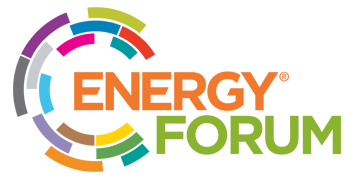Whilst the energy industry undeniably has some way to go towards achieving diversity in job roles across the sector, there is positivity out there. This comes in the form of existing initiatives for women and other minority groups, which aim to create a discussion around key issues, as well as promote visibility and encourage future generations. How interesting to think what the founders of the Women’s Engineering Society, a century ago, would make of it all!
Steps in the right direction
Friends of All-Energy, POWERful Women, is an initiative to advance gender diversity within the sector with a target of 40% middle management and 30% executive board positions to be female by 2030. They work by campaigning and reporting on diversity figures to create transparency within the industry. They also support women aspiring towards the next steps in their careers and provide practical support for parties trying to improve diversity in their organisation – business case evidence and “how to” guides”. You can hear from POWERful Women at All-Energy 2019, where, sponsored by ScottishPower Renewables, they will hold a networking lunch, following the success of the past years’ programmes.
Another initiative is the She is Sustainable conference, launched in February 2016, which has subsequently played host to women in sustainability to learn from each other and “talk about women and changing the world”. The discussions here have since spiralled into a new “Energy Pioneers” initiative in partnership with Green Alliance and UK Energy Research Centre (UKERC). This aims to empower women in the early stages of their career via networking, improving their awareness of opportunities and increasing their exposure and policy influence. They also run ‘She is Still Sustainable’ events for mid-career women.
In 2018, Energy UK showcased the steps that have been taken by the industry towards greater diversity in their “Diversity and Inclusion in Energy” publication. Their “Pride in Energy” network is a forum for LGBTQ+ members of the sector to address and discuss LGBTQ+ issues within the industry, as well as running several events throughout the year. Energy giants npower have also launched their own network for LGBTQ+ members of their community, as well as anyone who wants to take part in educating and reducing prejudice in the industry, fostering acceptance, and empowering LGBTQ+ employees and other parties throughout the business.
As we mentioned in our previous article, visibility is key and renewable. RenewableUK’s “Switch List” aims to promote just that. The list is a database of women working in the energy sector, which intends to make it easier for event organisers to identify female experts and invite them as speakers or panellists in order to raise their profile and inspire the next generation. They also pledged to feature at least 30% female speakers, panellist and chairs.
Speaking of inspiring a future workforce, EDF Energy’s “Pretty Curious” project aims to address the prospective significant skills shortage which will occur if the number of girls studying STEM subjects continues to fall. The programme raises awareness of the issue via advertising, introduces teens to real-life inspirational role models (Rey from Star Wars wouldn’t have had a chance at defeating Kylo Ren without an extensive engineering background) and creates empowering hands-on experiences, now reaching over 2,300 girls in the UK each year. 90% of the girls attending said that the events made STEM more interesting to them.
A world of change
It’s not just business in the UK which stands to progress from initiatives promoting diversity in energy. Looking further afield, Energy 4 Impact’s “Energy 4 Women” raises awareness of the socio-economic benefits of integrating women into energy value chains and campaigns for gender equality in development strategies, energy policies and energy access projects in Africa. They provide the right technology and business-savvy advice to female entrepreneurs in rural parts of the continent so they may increase access to energy in their local communities, where women and girls may often greatly feel the impact of energy poverty.
In Malawi, where only one in ten people has access to electricity but the sunshine is plentiful, you’ll meet the “Solar Mamas”. VSO International have curated a project to train local women (most of whom are unable to read or write) to become solar engineers. Over a six-month intensive course they learn building and wiring techniques for electrical components in order to build solar lanterns. Not only did the course teach them skills to light up their entire village and provide free solar electricity for almost 100 homes, it also massively boosted their confidence and independence.
The benefits don’t end there; one resident of a “solar” village has since been able to sew long after sunset, which has enabled her to expand her business and thus double her income whilst other women have started a mobile phone charging business. For many of the “Solar Mamas”, having a regular income is a life-changing means to better education and freedom.
It’s not all bad news
If we were to list all of the initiatives emerging for female and minority groups in the energy sector, we’d honestly be here for quite a long time, which shows that there are indeed steps being made in the transition to diversity. Keep an eye on our social media over the next few weeks as we’ll be shining a spotlight on some of the companies participating in All-Energy who are taking it upon themselves to change the face of the market internally.

